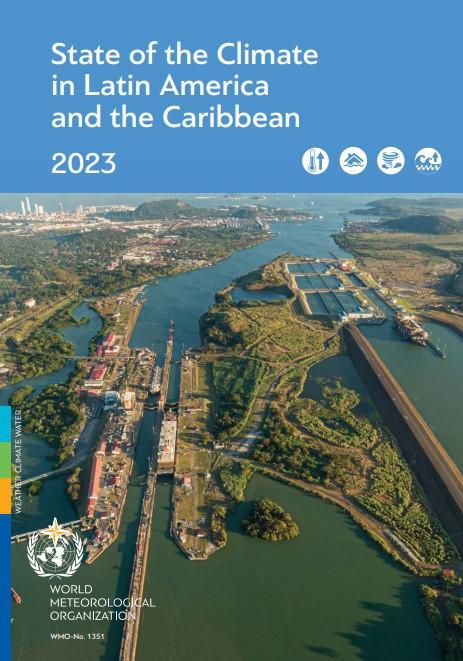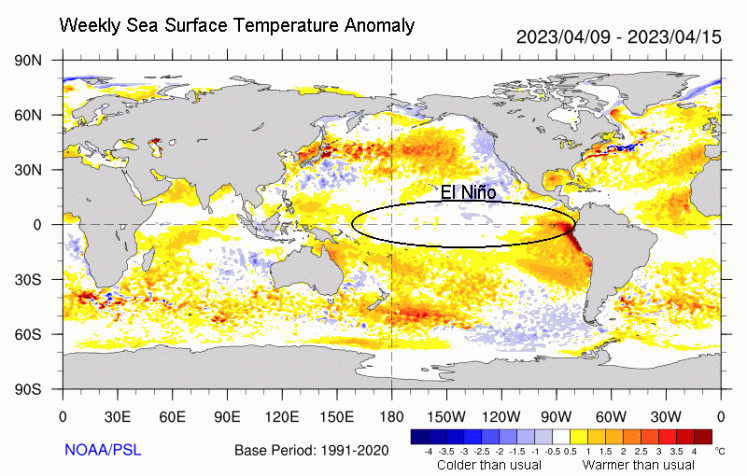2023 broke records across the board: Temperature, sea level rise, glacier retreat, drought, fires, and vector-transmitted diseases.
This is according to the World Meteorological Organization's 2023 Report on the State of the Climate for Latin America and the Caribbean, released today.
Although the situation can be traced back to an abnormally strong El Niño event, as part of the natural ENSO cycle, authors are concerned with the additional impact that comes from human-generated climate change, which leaves the region at a vulnerable stance against this very impactful weather oscillation.
Adaptation should be a much more significant topic in the region, and this report stresses that. Governments and citizens of LAC will need to have responses ready for coastal erosion and sea-water intrusion, more frequent heatwaves, dwindling water sources, extreme weather events, wildfires, air pollution, and ecosystem change. However, two topics call for biotechnologists to play an active role in generating tailored products ready for deployment in the face of these threats: Food security and health.
Drought, floods, hurricanes, water scarcity, ecosystem change, heat waves, and saline intrusion are major weather-related concerns affecting crops. Fisheries will also be strongly and negatively impacted. According to the report, only 47% of WMO members reported providing tailored agricultural products in the face of adverse weather events. The future of food production in Latin America and the Caribbean will require more than just resistant crops and biotechnological additives for animal productivity; there will be a need for very flexible, tailored protocols that can respond quickly to the advisories coming from close monitoring of weather conditions.
- Viral diseases like Dengue, Zika, and Chikungunya are expanding their range along with their tropical vectors. According to the report, 2019 was a record-breaking year for Dengue, with 3 million infections and the first cases in countries like Uruguay. 2023 broke this record during the first three months. Biotechnology can quickly develop new gene and ARN-based vaccines and therapies for neglected diseases. Moreover, companies in Brazil are trying a different approach with bioengineered mosquitoes that can cull transmissions by ecological competition.
Will we be up to the challenge? The technologies needed to stave off the predictable consequences of a changing weather are unlikely to come from other latitudes. We will require tailored solutions for our crops, ecosystems, and how our societies work, so these must come from ourselves. Governments will have a crucial role to play, not only as funders of research and development but also as providers of integral weather services needed for the correct application of solutions.
By 2023, as stated in the report, only 6% of WMO members provide such comprehensive weather services.

Suggested citation: Carlos Peláez., "State of Climate in LAC presents a challenge for the region's biotechnologists," UNU-BIOLAC (blog), 2024-05-09, 2024, https://unu.edu/biolac/blog-post/state-climate-lac-presents-challenge-regions-biotechnologists.

